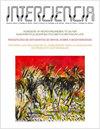废物转化为能源的可行性。城市生活垃圾焚烧经济评价与建模
IF 0.4
4区 综合性期刊
Q4 ECOLOGY
引用次数: 0
摘要
目前,圣彼得堡和列宁格勒地区产生的大部分城市固体废物都被直接送往垃圾填埋场。垃圾填埋场会造成多重问题,如甲烷和二氧化碳排放、垃圾填埋场火灾、异味和地下水污染。垃圾焚烧是一种以电和热的形式回收垃圾能量的方法。在本研究中,提出了一个估计WtE焚烧厂盈利能力的模型,并将其应用于圣彼得堡市和列宁格勒地区。根据所使用的数据,垃圾焚烧在该地区是经济上可行的,但估算的变化会影响经济可行性,收入的变化对结果的影响最大。本文章由计算机程序翻译,如有差异,请以英文原文为准。
Waste to Energy Feasibility. Economic Assessment and Modelling of Municipal Solid Waste Incineration
Currently, most of the municipal solid waste generated in St. Petersburg and Leningrad region is sent straight to landfill. Landfills cause multiple problems, such as CH4 and CO2 emissions, landfill fires, odors, and groundwater pollution. Waste-to-Energy (WtE) incineration is a way to recover the waste\'s energy in the forms of electricity and heat. In this study, a model for estimating the profitability of a WtE incineration plant is presented and applied to the city of St. Petersburg and Leningrad region. Based on the data used, WtE incineration is economically feasible in the area, however changes in estimates impact the economic feasibility, and the changes in the revenues have the highest impact on the outcome.
求助全文
通过发布文献求助,成功后即可免费获取论文全文。
去求助
来源期刊

Interciencia
综合性期刊-生态学
CiteScore
0.80
自引率
25.00%
发文量
1
审稿时长
4-8 weeks
期刊介绍:
Interciencia is the monthly multidisciplinary publication of the INTERCIENCIA Association. It is dedicated to stimulate scientific research, its humanitarian use and the study of its social context, specially in Latin America and the Caribbean and to promote communication between the scientific and technological communities of the Americas.
Interciencia has been published uninterruptedly since 1976. Its Founding Director, Marcel Roche (endocrinologist and sociologist of science) was editor until 2008, and thereafter Miguel Laufer (neurobiologist) has been in charge. It has been included since 1978 in the Science Citation Index and other international indexes, and since 2008 it maintains an open access electronic version with material from 2005 onwards.
The priority areas of the journal, without exclusion of other areas, are Agronomy, Arid Lands, Food and Nutrition, Biotechnology, Ecology and Environment, Energy, Innovation and Technology Transfer, Marine Resources, Non-renewable Resources, Science Education, Science Policy, Study and Sociology of Science, and Tropical Forests.
Interciencia publishes in Spanish, Portuguese and English research and review articles, communications and essays, all of which are subjected to peer review. Additionally, it includes non-refereed sections such as Editorial, Letters to the Editor, Open Town Hall, Book Reviews and Upcoming Events.
All the material submitted to the journal for publication and accepted by the Editorial Committee in view of its quality and pertinence is subjected to review by peer specialists in the corresponding fields of knowledge. Neither the INTERCIENCIA Association, nor the journal or the institutions to which the authors belong carry responsibility for the contents. Signing authors are responsible for the material published under their names.
 求助内容:
求助内容: 应助结果提醒方式:
应助结果提醒方式:


